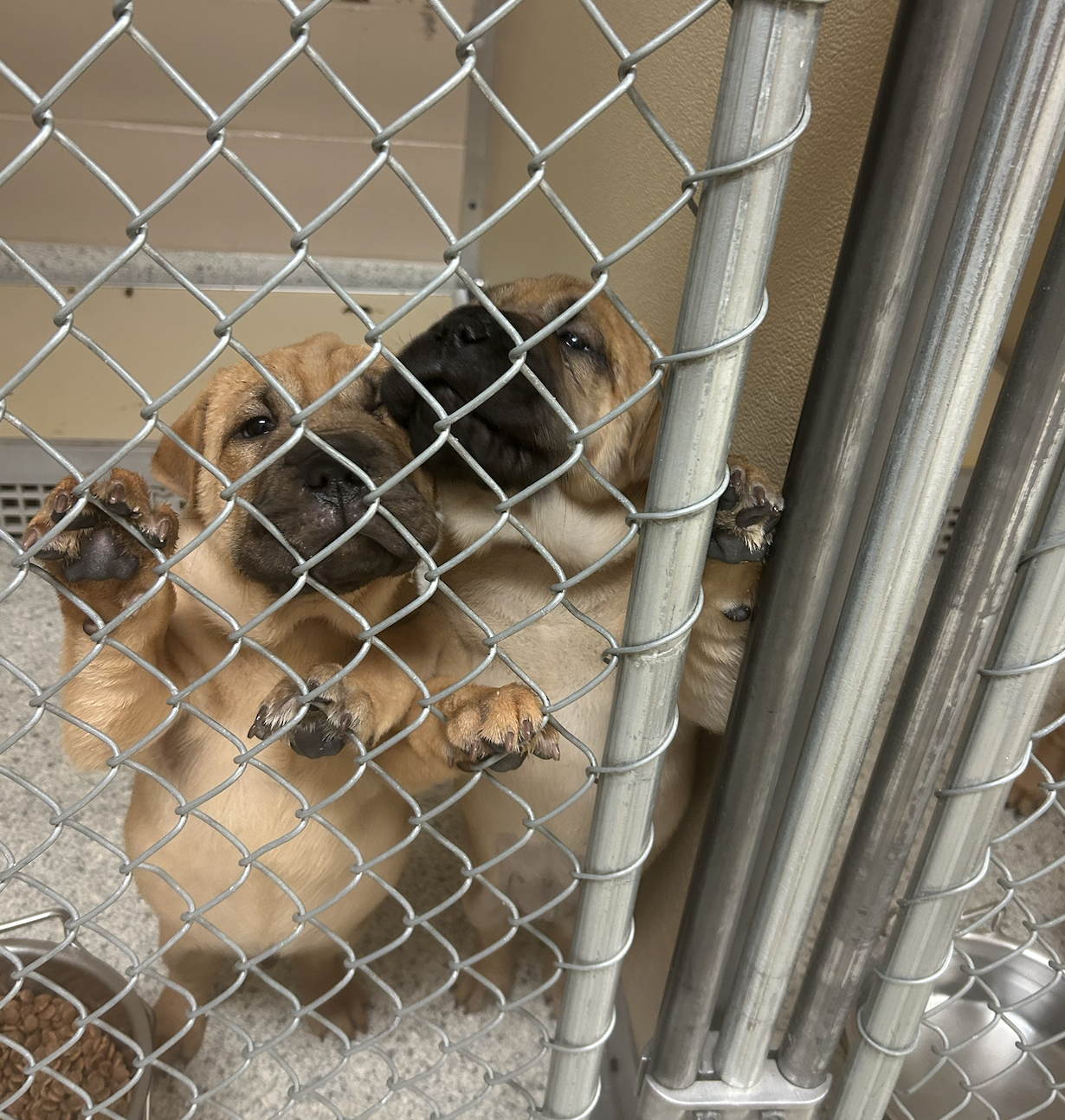This is a paid piece from the Sioux Falls Area Humane Society.
Simplified: Thinking of adding a new furry family member? The Sioux Falls Area Humane Society shared some pro tips for what questions to ask yourself and what plans to have in place before you adopt your next pet.
Why it matters
- Adopting a pet is an exciting time in any household, but there are a number of factors to consider before you add a new family member.
- It's important to think about your budget, lifestyle, schedule, as well as existing family members and pets when you consider adopting a new pet. Some animals have a lot of energy or require a lot of training, while others may be a better fit for people who work outside the home, for example.
- New pets also take several months to fully integrate into the family. Community Outreach Director Dana Peterson-Konzem describes the "3-3-3 rule."
"The first three days, the animal is going to be overwhelmed and nervous," she said. "The next three weeks is when you get to bond with them, and more personality comes out. The first three months is when they start to feel at home and understand the rules of the household."
What factors should I consider before adopting?
So glad you asked – here are some big ones:
Lifestyle
It's important to think about the personality of animal that you're looking for. Do you have the time and energy required to train a puppy? Or do you want a cat that snuggles up on the couch most of the day?
You also have to consider what you can provide for this animal. If you're going to be out of the house for most of the day at work, you might want to look for a dog that's already kennel trained, for example. Or you may need to build in a lunch break where you can stop home and walk your dog if they're more high energy.
It's also worth considering what your next three months look like, Peterson-Konzem said.
"If you're planning on going anywhere major within that '3-3-3,' it might be best to wait to adopt because you need to be around that animal to let it acclimate to you," she added.
Family
In addition to thinking about lifestyle and the time you'd have available for training, walks, etc., it's also important to think about how your new pet will fit in with the rest of the family.
- If you already have a dog at home, the humane society will require you to bring your dog in and do introductions before you bring another dog home.
- If you have kids, you'll want to find a pet that is comfortable around small children.
- If you have a cat at home, you'll want to have a plan in place for how you'll introduce the new pet – typically keeping them separated at first and swapping blankets so they can get used to each other's smell.
Medical care
Pets adopted from the Sioux Falls Area Humane Society will be spayed or neutered, microchipped and started on vaccinations. But there are often still initial medical needs.
- The humane society doesn't always know an animals health history, and pets can also pick up "kennel cough" or other respiratory infections during their stay at the shelter.
Several veterinarians in the area will do an initial checkup for free on an animal you adopt from the shelter, but that does not include any necessary medications.
It's a good rule of thumb to have $500 set aside for medical expenses, just in case, Peterson-Konzem said.
Budget
That brings us to budget. You'll want to think about both the initial adoption costs and ongoing costs like food and medical care.
Adoption fees for cats typically average around $100 with fees for dogs averaging about $125.
- That said, small breeds, puppies will cost closer to $300 or $400, and purebred puppies can range as high as $600 to $900.
It's also worth noting that the adoption fees you're paying do not cover the actual cost to the humane society for the care they've given up to this point.
- Cats cost the humane society an average of $400, and dogs an average of $500 just to get them up for adoption. Extended stays (and corresponding care) cost $800 on average.
Ongoing costs are also important to consider.
- If you adopt a large dog, for example, you could be buying a $90 bag of food every couple of weeks.
- If you adopt a high energy pet, you'll want to budget for toys, puzzle feeders and other ways to keep them occupied and mentally stimulated.
Ok, I'm ready to adopt.
Amazing. The next step is to head on down to the humane society, fill out an application and start looking for your new best friend. Or, you can peruse available animals online here.


